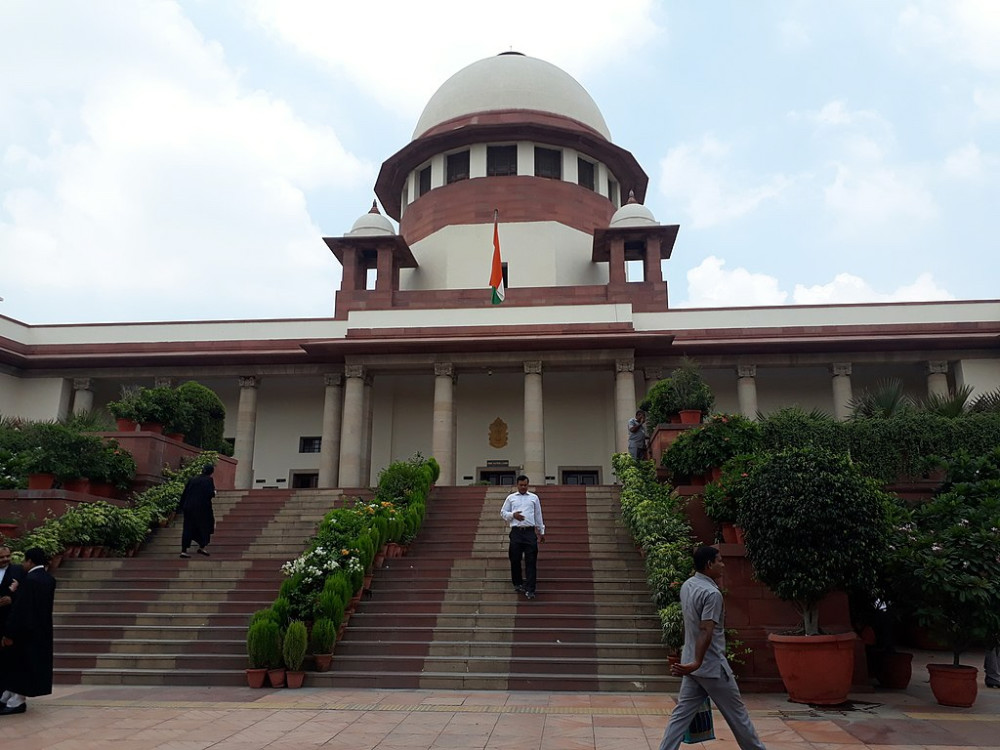Chennai, India
Thomson Reuters Foundation
Two child trafficking victims gave evidence via video conferencing for the first time on Monday as part of an Indian judicial push to speed up slavery trials and clear a backlog of cases.
Hundreds of child trafficking cases in India have stalled due to delays in hearing testimony from survivors, who often have to travel far from their villages to give evidence in city courts, prosecutors and campaigners said.

The Supreme Court of India in Delhi. PICTURE: Pinakpani (licensed under CC BY-SA 4.0)
But under the pilot project launched by the Supreme Court, two boys rescued from a New Delhi embroidery workshop in 2018 used video conferencing to testify remotely from eastern Bihar state – some 1,000 kilometres from the capital.
Instead, they had a journey of just 40 kilometres from their village to give their video evidence from a local court, said Sandeep Kumar, field coordinator of anti-trafficking charity Centre Direct.
“The in-camera proceedings finished within two hours and the boys went home. Ordinarily, they would have had to travel to Delhi at least one day before to testify. It would have been expensive and they would have simply not gone,” he added.
Both boys were aged about 12 when they were trafficked to New Delhi, Kumar added.
About 2,260 cases of human trafficking were reported in India last year, according to government data. These cases involved 6,616 victims, of whom 44 per cent were children.
Born into poverty, many of the children are trafficked to work as slaves in India’s multi-billion dollar handicraft industry or into brothels and domestic servitude.
A 2020 petition before India’s Supreme Court, which led to the video conferencing pilot, said the need for rescued child trafficking victims to travel long distances to give evidence hampered their rehabilitation and delayed court cases.
Delays mean trafficking survivors often have to wait years to access state government compensation.
Indian courts have been using virtual hearings during the coronavirus pandemic, and the petition called for video conferencing to become the norm in all child trafficking cases.
A lawyer in the case of the two rescued boys said requiring testimony to be given in person before a judge was “impractical, expensive and often just stalls a trial for years”.
“If the journey is more than 200 kilometres, the survivor should testify through video conferencing,” the lawyer added, requesting anonymity because the case is ongoing.
Centre Direct said it had registered more than 500 cases that were on hold awaiting testimony from trafficked children, and executive director of the non-profit Suresh Kumar said the new initiative would “have a huge impact”.
“Traffickers operate with impunity, knowing that these cases will never reach their logical conclusion. If the pilot project is successful, it will set a precedent,” he said.






